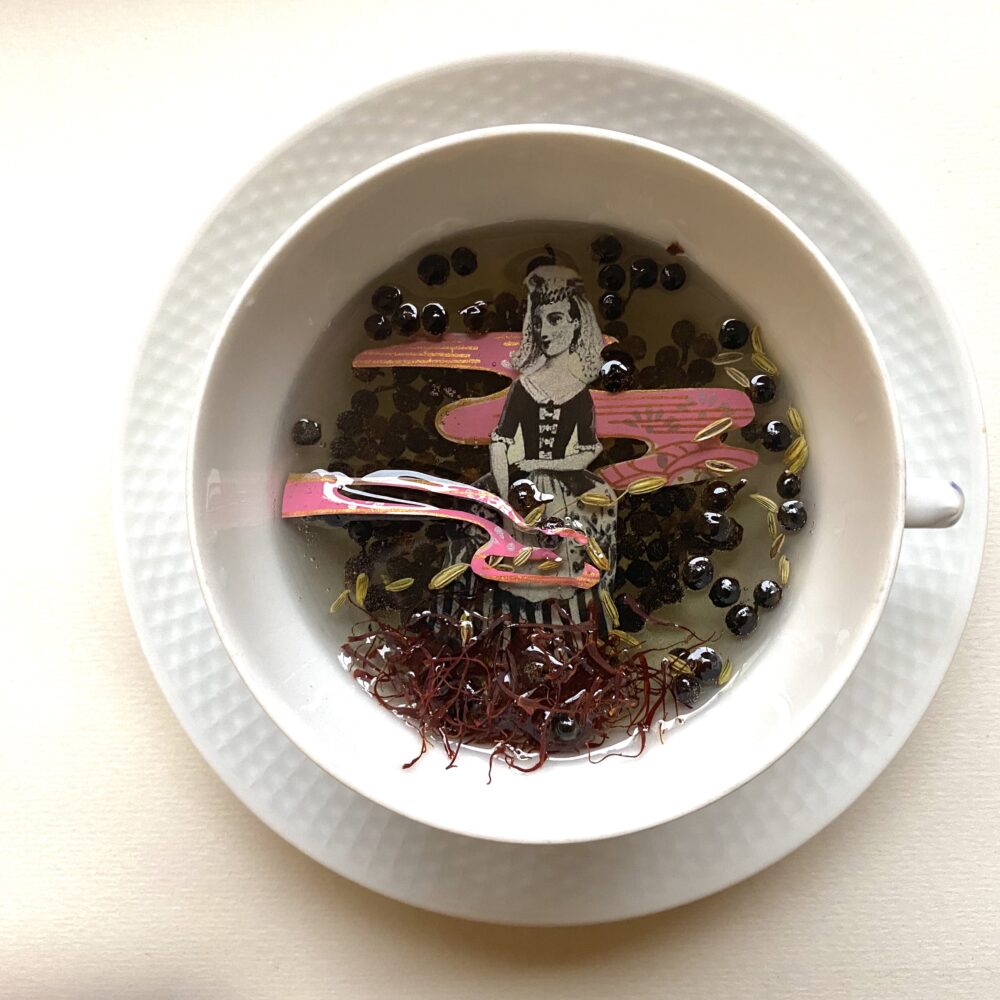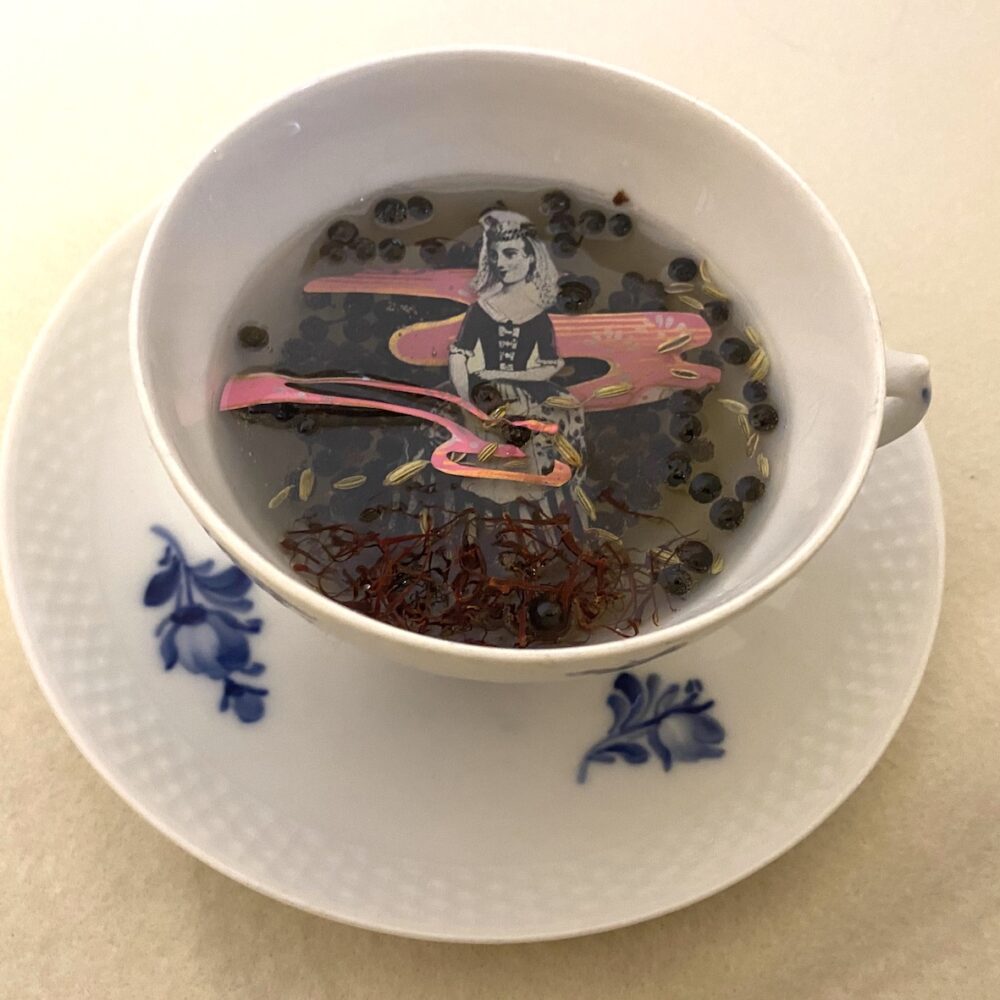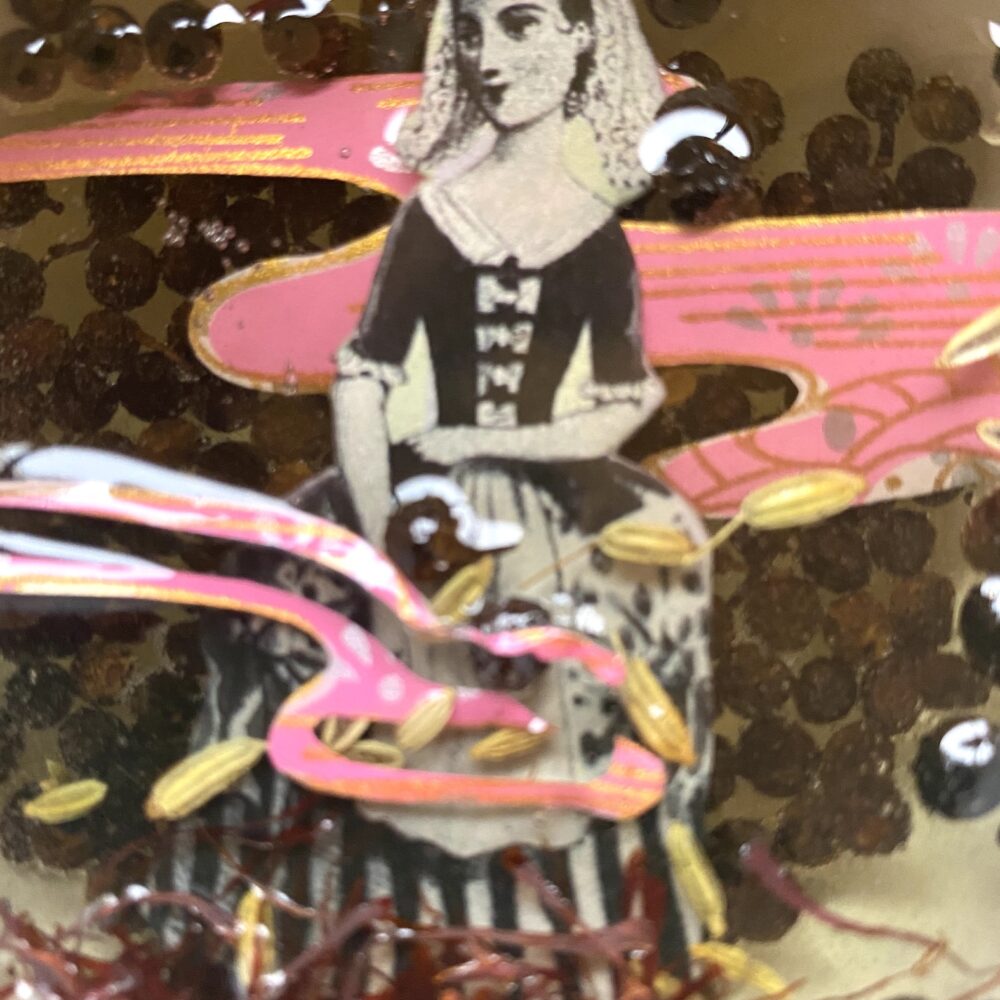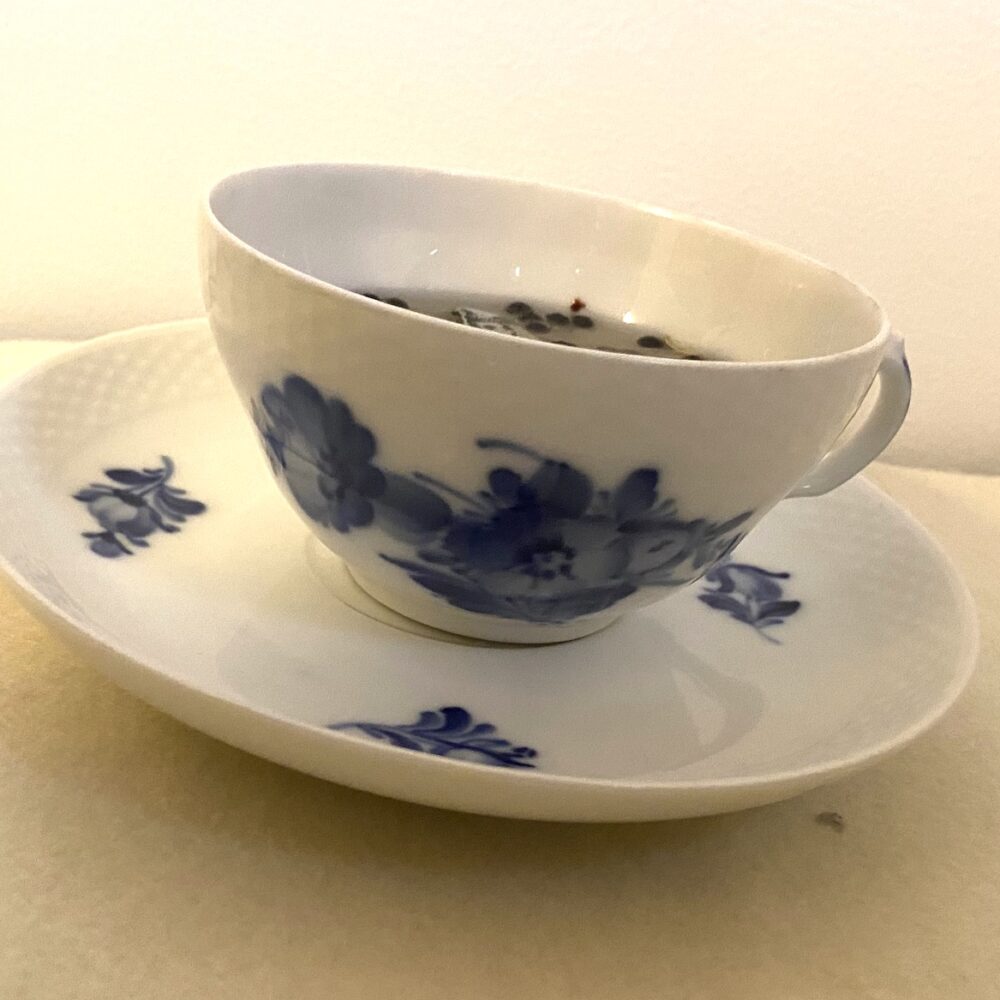Colonial Cups investigates how objects can embody and convey historical and personal contexts in it of themselves and have the capacity to create dialogue with other objects.
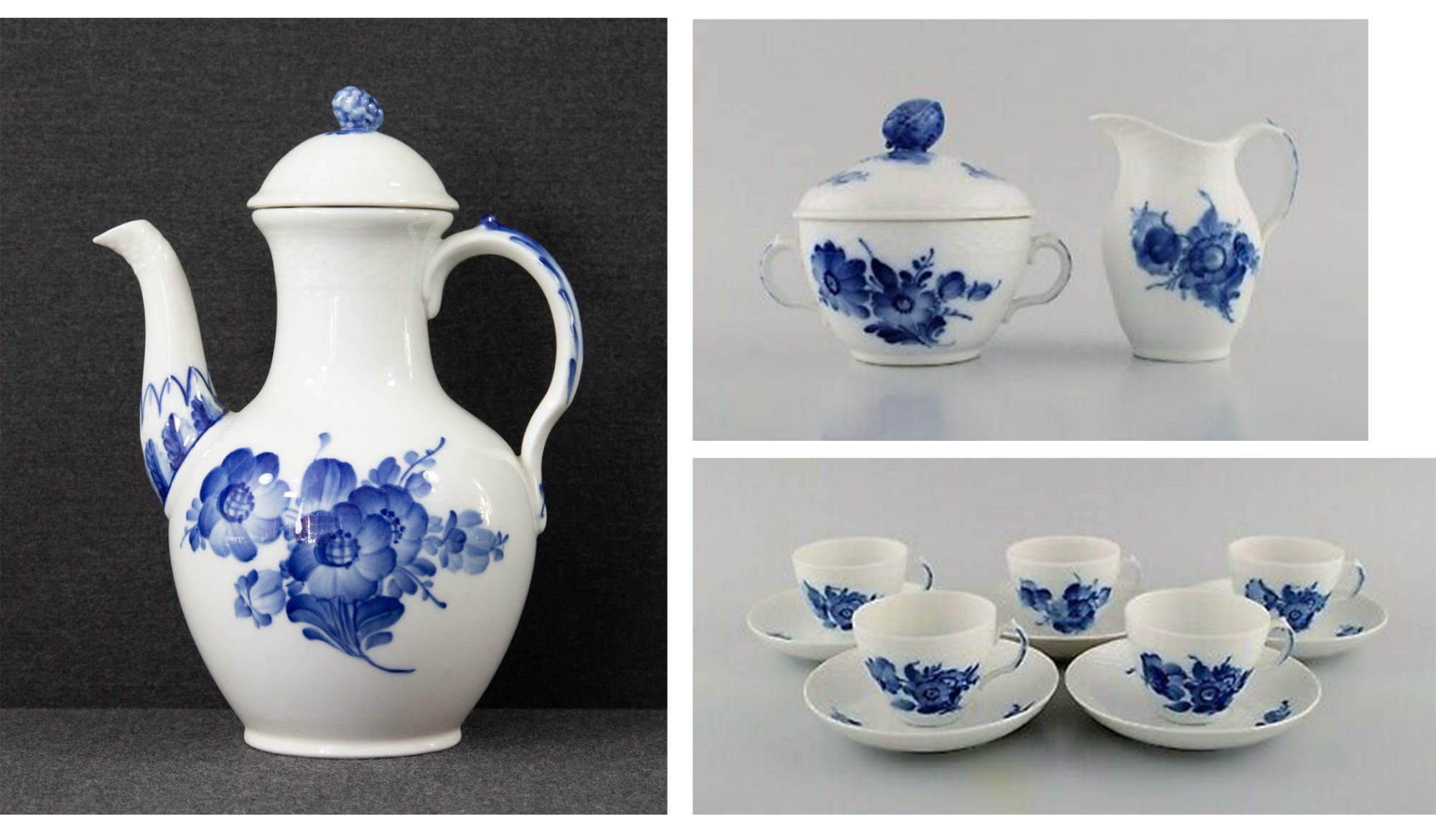 This classic “Danish Blue Flower” motif from Royal Copenhagen Porcelain Factory coffee set was given to me by my grandmother. Queen Juliane Marie founded the factory in 1775 for the purposes of supplying the crown’s household needs as well as to manufacture gifts for visiting dignitaries. (The “Danish Blue Flower” is one of the factory’s first pattern designs and has become its iconic motif.) The founding of the Royal Copenhagen Porcelain Factory coincided with the height of the Danish involvement in the Atlantic slave trade. The Danish participated in the selling of African slaves from the 1600s until 1803. (However, slavery was not completely abolished in Danish lands until 1848.) Thus, the vessels are the perfect container to both metaphorically and literally frame conversations about the legacy of colonialism/imperialism.
This classic “Danish Blue Flower” motif from Royal Copenhagen Porcelain Factory coffee set was given to me by my grandmother. Queen Juliane Marie founded the factory in 1775 for the purposes of supplying the crown’s household needs as well as to manufacture gifts for visiting dignitaries. (The “Danish Blue Flower” is one of the factory’s first pattern designs and has become its iconic motif.) The founding of the Royal Copenhagen Porcelain Factory coincided with the height of the Danish involvement in the Atlantic slave trade. The Danish participated in the selling of African slaves from the 1600s until 1803. (However, slavery was not completely abolished in Danish lands until 1848.) Thus, the vessels are the perfect container to both metaphorically and literally frame conversations about the legacy of colonialism/imperialism.
